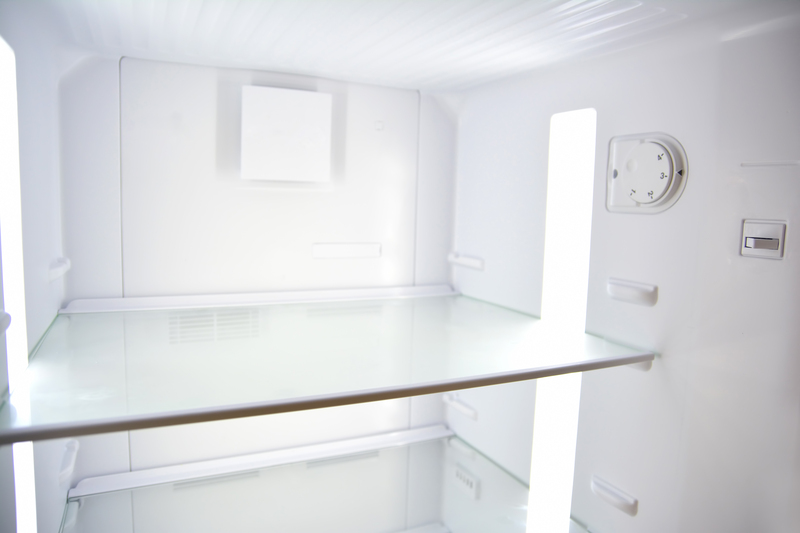Store Your Sofa the Right Way with Expert Advice
Whether you're moving, downsizing, or just redecorating, knowing how to properly store your sofa is crucial to keeping it in pristine condition. Improper storage can lead to stains, tears, and even permanent damage--costing you time and money. But with the right tips and expert advice, you can store your sofa safely and have it look as good as new when you need it again.

Table of Contents
- Why Proper Sofa Storage Matters
- Preparing Your Sofa for Storage
- Choosing the Right Storage Space for Your Sofa
- Expert Tips for Safe Sofa Storage
- Common Sofa Storage Mistakes to Avoid
- Frequently Asked Questions about Storing Sofas
Why Proper Sofa Storage Matters
Your sofa often represents both a significant investment and a central piece of your living space. Storing your sofa correctly will not only preserve its appearance but also maintain its structural integrity. Here's why proper sofa storage is essential:
- Prevents permanent damage: Moisture, pests, and pressure can ruin your sofa's upholstery and frames.
- Preserves value: Sofas in excellent condition retain their resale value, saving money in the long run.
- Reduces allergen buildup: Thoroughly cleaned and wrapped sofas keep dust mites and mold at bay.
- Avoids unnecessary repairs: Save on future costs by preventing stains, tears, and structural issues.
Expert advice can make a world of difference in extending the lifespan of your couch when it's not in use.
Preparing Your Sofa for Storage
The first step to store your sofa the right way is preparation. Don't just move your couch into a storage unit. Instead, follow these key steps to ensure your sofa transitions safely.
1. Clean Your Sofa Thoroughly
Even a small amount of debris can turn into a big problem over time. Cleaning your sofa before storage is vital to prevent stains, smells, and pest infestations.
- Vacuum all surfaces: Use a crevice tool to reach behind cushions and seams.
- Spot clean stains: Use manufacturer-recommended cleaners based on your sofa's material--leather, fabric, or microfiber.
- Disinfect and deodorize: Lightly spray with fabric-safe disinfectant to kill germs and remove odors.
- Dry completely: Never store a damp sofa, as it can foster mold and mildew.
2. Disassemble What You Can
Remove legs, cushions, and arms if possible. This makes transporting and storing much easier and minimizes the risk of snapping frames or damaging attachments.
- Label parts for simple reassembly.
- Place bolts and screws in a sealed bag and tape them under the sofa frame.
3. Protect Your Sofa With the Right Coverings
Never use plastic wrap directly on your sofa for long-term storage, as it can trap moisture. Instead, try these expert-recommended solutions:
- Use breathable covers: Sofa or furniture blankets, cotton sheets, or purpose-made furniture covers protect against dust and light exposure while allowing air circulation.
- Wrap cushions separately: This prevents pressure dents and keeps them fresh.
- Double-wrap legs with bubble wrap: Especially important for wood or decorative features.
Choosing the Right Storage Space for Your Sofa
Where you store your sofa is as important as how you prepare it. Not all storage solutions or units are equal when it comes to keeping a sofa in top shape.
Climate-Controlled Storage: The Gold Standard
For most sofas, climate-controlled storage is worth the investment. Here's why:
- Maintains a stable temperature and humidity level--crucial for leather and wood frames.
- Prevents warping, cracking, and mold growth.
- Protects against temperature extremes that can make fabrics brittle or fade.
If climate-controlled options are unavailable, choose an indoor unit or a well-ventilated space away from direct sunlight and dampness.
How Much Space Do You Need?
When you store your couch properly, avoid forcing it into a small unit where it might get squished or bent.
- Measure your sofa after disassembly and get a unit at least 1.5 times the size.
- Allow for easy access and airflow around all sides of the sofa.
- Avoid stacking heavy boxes on or against the sofa to prevent pressure damage.
Other Storage Location Factors to Consider
- Good location security and surveillance help protect your investment.
- Units elevated above ground level reduce flood or moisture risks.
- Accessibility: Easier access means less jostling and risk when moving your sofa in or out.
Expert Tips for Safe Sofa Storage
Make your sofa storage a success with proven advice from furniture specialists and professional movers!
1. Store Your Sofa Off the Ground
Use pallets, risers, or planks to elevate your couch off the storage unit floor. This provides several benefits:
- Prevents moisture absorption from the floor.
- Allows air to circulate underneath, reducing mold risk.
- Protects from accidental spills or leaks.
2. Maintain Upright Position
Store your couch upright in its normal sitting position. Avoid standing it on end or sides unless space is extremely limited and it's well-supported. This prevents warping and maintains the integrity of internal springs and frame.
3. Avoid Direct Pressure on Upholstery
Never stack heavy boxes or items on top of your sofa, as this can cause dents, pressure marks, or even break frames. Instead:
- Utilize vertical space elsewhere in the unit for extra items.
- Leave a buffer zone around your sofa, ideally at least 6-12 inches from walls and other items.
4. Check On Your Stored Sofa Regularly
If possible, visit your storage unit monthly to check for issues. Look for:
- Mold or mildew growth.
- Signs of pests or insects.
- Any shifting or damage in sofa positioning.
Promptly address any issues to prevent long-term damage.
5. Freshen Up Periodically
Place moisture absorbers or odor-neutralizers nearby--such as silica gel packets or activated charcoal. Consider lightly refreshing sofa covers if they start absorbing smells.
6. Insurance for Peace of Mind
Valuable or antique sofas deserve protection. Contact your insurance provider or opt for storage unit insurance to cover your sofa against potential risks like theft, fire, or water damage.
Common Sofa Storage Mistakes to Avoid
Even with the best intentions, mistakes can happen during sofa storage. Here are the most common errors and how to avoid them:
- Wrapping directly in plastic: Plastic traps moisture, causing mildew and odors. Always use breathable fabric covers.
- Storing a dirty or damp sofa: Unclean or wet upholstery promotes bacteria, mold, and musty odors.
- Neglecting to disassemble: Failing to take apart removable sections increases risk of frame or leg breakage.
- Ignoring climate factors: Extreme heat, cold, or humidity can permanently damage most sofa materials.
- Skipping regular checks: Small problems like pests or leaks worsen if unnoticed for months.
- Forgetting to label hardware: This can make reassembly frustrating or impossible.
Learn from these mistakes to ensure your couch is stored the proper way and comes out looking as good as it went in.
Frequently Asked Questions about Storing Sofas
How long can I safely store my sofa?
A sofa can be kept in ideal storage conditions for several months to years. The key is proper preparation, climate control, and regular inspection.
Can I store a leather sofa in a non-climate-controlled unit?
Leather is highly sensitive to heat and humidity. Expert advice recommends always using climate control for storing leather sofas to prevent cracking and mold.
Is vertical storage (standing on one end) safe for my couch?
This is generally not recommended unless the sofa is compact and structurally reinforced. Standing on end for too long can cause permanent warping or leg damage.
What if I need to store my sofa temporarily at home?
Follow the same preparation steps: Clean, disassemble, and cover. Find a dry, shaded spot away from areas that may get damp, like basements or garages, and keep off the floor.
Can I stack other furniture on my sofa in storage?
No. Placing items on your sofa risks compressing the cushions and damaging the frame or upholstery. Always leave it clear.
Do sofas need to be elevated off the floor in storage?
Absolutely! Elevation protects from water, mold, and pest issues.
Should I use commercial furniture storage services?
For high-value, antique, or specialty sofas, a professional storage service offers tailored conditions and extra protection, often including packaging and insurance options.

Conclusion: Store Your Sofa Properly for Lasting Results
Storing your sofa the right way protects both your wallet and your comfort. By following expert guidelines--cleaning, disassembling, covering, choosing the right storage space, and routine checks--you'll ensure your sofa stays beautiful and functional for years to come.
Whether you're putting your couch away for a season or the foreseeable future, taking these steps today means enjoying a fresh, welcoming sofa tomorrow. Trust the experts, avoid common mistakes, and give your sofa the storage treatment it deserves!
For more storage and furniture care tips, be sure to check our other expert articles and resources--your home (and your sofa) will thank you!



